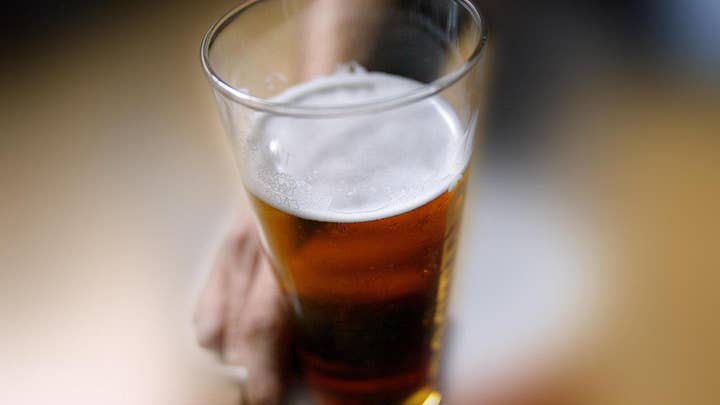Addicted in America: 15 million Americans suffer from alcohol use disorder
88,000 people die from alcohol-related causes each year, making it the third leading preventable cause of death behind only smoking and obesity; Dan Springer reports.
Ketamine was once known as the club drug of choice for wild ravers — but it could soon become synonymous with sobriety.
A new study has found that the drug — also known as Special K — can help heavy drinkers cut back dramatically on alcohol.
Just a single dose, when combined with some mental exercises, lowers booze use by “rewriting” the memories of drinking that make alcoholics drink too much, said the study, published Tuesday in the journal Nature Communications.
NEW JERSEY HOSPITAL GIVES KIDNEY TRANSPLANT TO WRONG PATIENT, OFFICIAL SAYS
A group of British researchers looked at 90 beer lovers “with hazardous/harmful drinking patterns” who were known to down roughly 30 pints a week.
Participants were first given a glass of beer and told they could drink it after looking at and rating a series of images of other beverages, such as orange juice, beer, wine and soft drinks.
The researchers then gave some of the people a small dose of ketamine, which is known to have an effect on people’s memories.
By day 10 of the study, the people who were given ketamine combined with memory therapy saw reductions in their urge to drink and drank less alcohol.
Those given the ketamine halved their weekly alcohol consumption over nine months, the study said. Researchers said this could completely change the way alcohol treatment is conducted.
ROMAINE LETTUCE E. COLI OUTBREAK TIED TO CALIFORNIA REGION HITS 67 CASES
“We found that heavy drinkers experienced a long-term improvement after a very quick and simple experimental treatment,” said the study’s lead author, Dr. Ravi Das.
“Learning is at the heart of why people become addicted to drugs or alcohol. Essentially, the drug hijacks the brain’s in-built reward-learning system, so that you end up associating environmental ‘triggers’ with the drug. These produce an exaggerated desire to take the drug,” said Das.
CLICK HERE TO GET THE FOX NEWS APP
The study’s senior author, Sunjeev Kamboj, a professor at University College London, called ketamine “a safe, common drug that is being explored for multiple psychiatric uses, including depression.”


